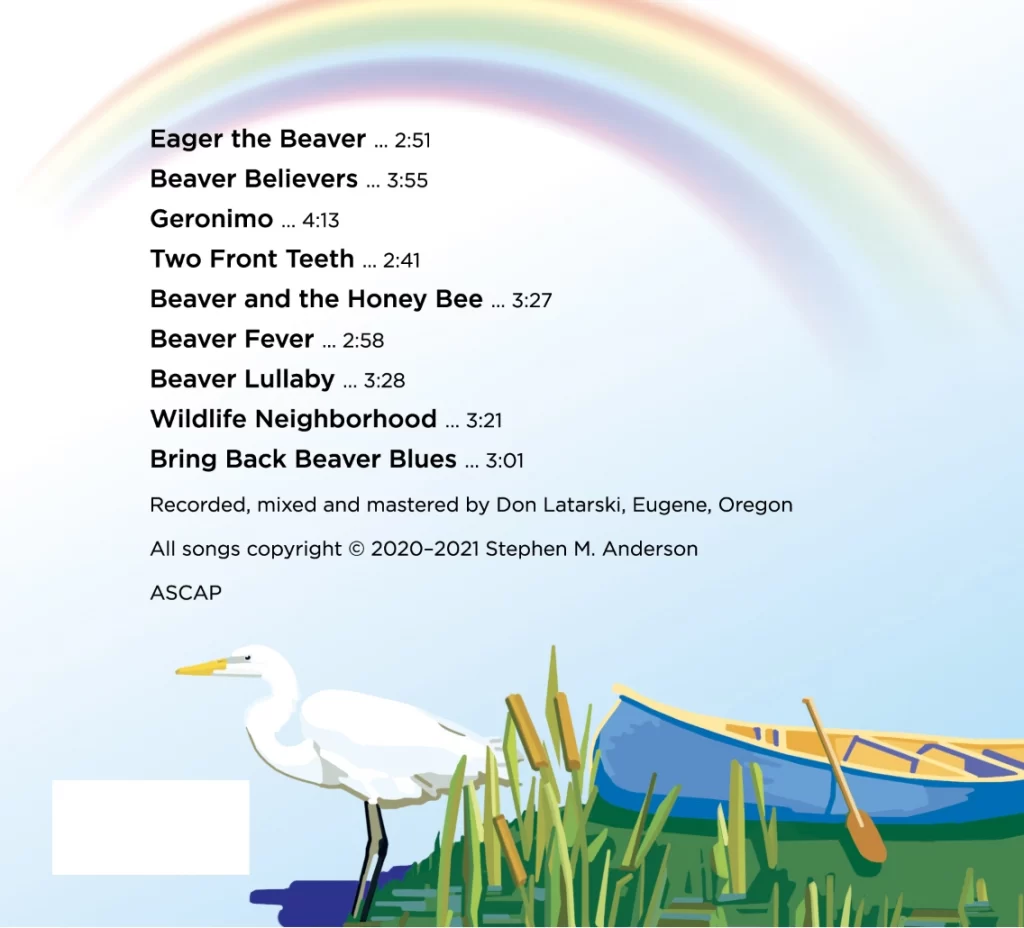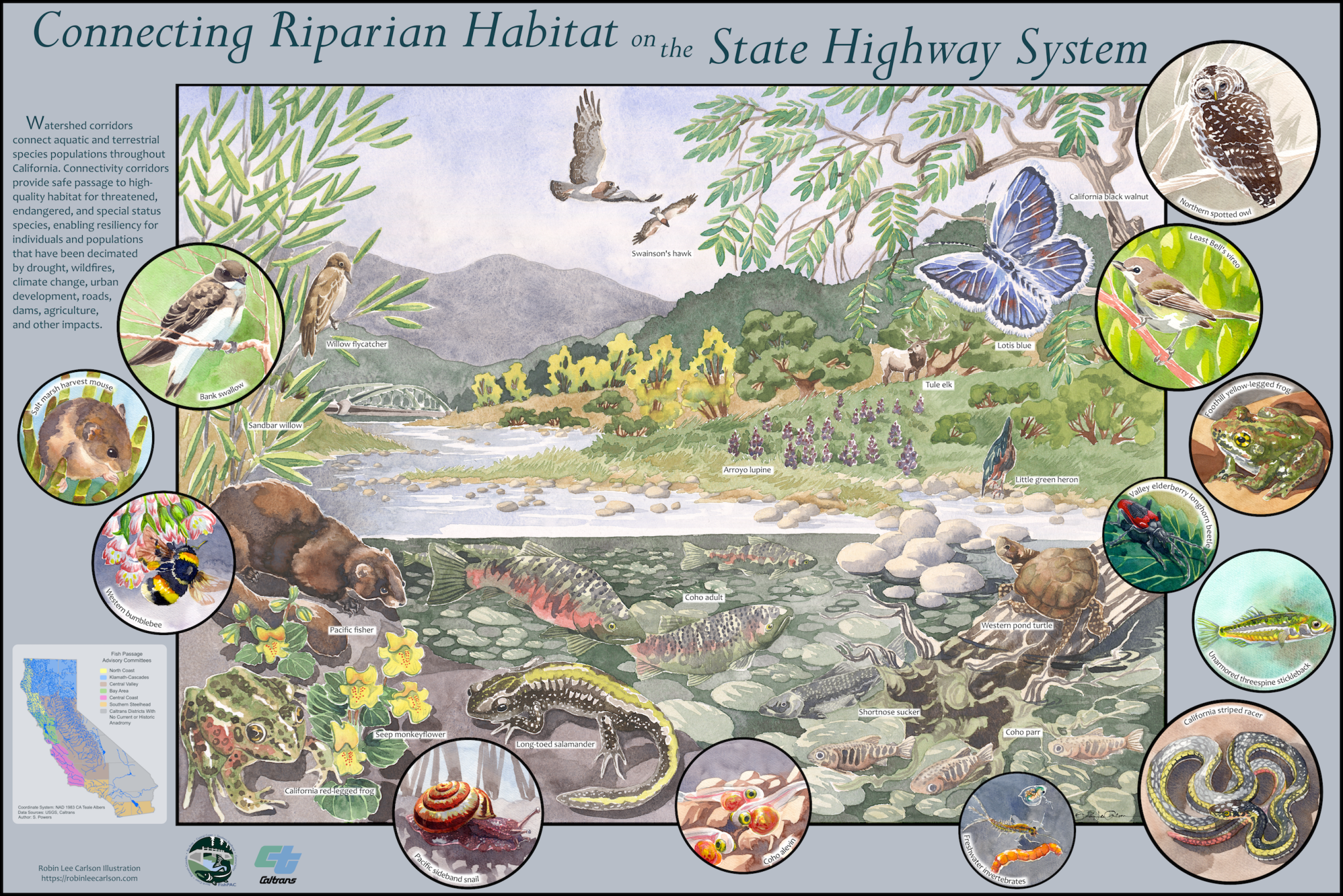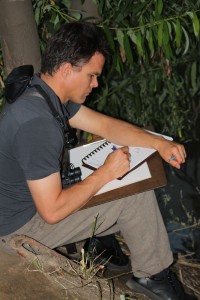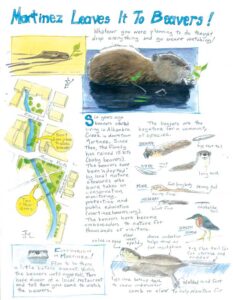I was so happy to see this great article featuring Stephen Anderson’s awesome beaver album. His fantastic work deserves recognition and acclaim. But for the life of me I can’t understand why the headline applies. I guess because the article talks about flow devices, but it talks just as much about music?
 LA GRANDE — With guitar in hand, Stephen Anderson is helping people discover that beavers have the potential to be an environmental superhero.
LA GRANDE — With guitar in hand, Stephen Anderson is helping people discover that beavers have the potential to be an environmental superhero.
Anderson, a Eugene resident with deep La Grande roots, has released a CD called “Beaver Celebration” that is part of his drive to heighten the awareness the public has of the good things beavers can do for the environment.
Beaver Celebration contains nine fast-paced songs telling stories about the North American Beaver.
“All of the songs were inspired by the ability of beavers to create a wildlife neighborhood from flowing water,” Anderson said. “Nobody else but humans can create their own environment the way beavers can.”
Anderson, who lived in the La Grande area from 1960 through 1997, wants to convince the public and farmers and ranchers that beavers can play a valuable role in restoring and enhancing watersheds, something that is becoming more critical than ever in this age of climate change.
Tadaa! Fantastic press for Stephen. You can bet I’m already fantasizing about what these songs would sound like on stage at the beaver festival. Ooooh.
Use of a deceiver often results in beavers constructing a series of smaller dams on streams that leave meadows in their wake. The meadows are created from the water that leaks out from them.
“Greenways are created,” Anderson said, adding lush meadows appear because water tables are raised and vegetation, including willow, aspen and cottonwood appears, providing shade that reduce temperatures.
The technology that ultimately makes this possible is a device that tricks nature’s dam builders into making smaller ones, one known as a beaver deceiver. Anderson said the deceiver keeps water levels down to an acceptable level for farmers and ranchers and high enough for beavers to remain. The deceiver allows water to exit the pond not by overflow but by an intake pipe located below the surface of the water. Anderson said water exits the pond through a covered drain located below the surface of the water and a large diameter black pipe. The key is the draining process the deceiver allows is silent.
Well not exactly. Being unable to feel the suction because the 6 foot filter keeps them away from the intake matters too. They can still hear the outflow much of the time.
Anderson said farmers and ranchers are receptive to the idea of building beaver deceivers when they are introduced to the innovative invention.
“When we get the information to them, farmers and ranchers are discovering the blessings in the system,” he said.
Anderson wants the state to begin making funding available to farmers and ranchers for installation of beaver deceivers and later hopes that money can be made available for them by the federal government.
“We want to take this to a national level,” he said. “We want to take this as far as we can.”
Anderson said that one of big pluses of the series of smaller dams beaver deceivers can help create, is that the dams can remain in place for years.
“They will improve water in a sustainable way,” he said.
Anderson hopes that the availability of the deceivers will ultimately result in fewer farmers and ranchers trapping beavers to protect their land. This, he said, could spark a comeback of the beaver, an animal that almost became extinct in Oregon and in many parts of the United States in the 1800s due to heavy trapping. Anderson said it is estimated that there were once at least one million beavers in Oregon, many of which were in Northeast Oregon. He said it is not known today how many beavers are in this region or the state. However, he said the total is a small fraction of what it once was.
I like the idea of triggering a beaver renaissance across the state. Save some of that good vibe for California too, will you?
Today it is only fair, Anderson said, that a full-fledged effort is made to help restore beavers throughout the United States because of the role their dams have played in the development of ecosystems across the nation.
“They built this environment and then we took them out of it,” he said.
I don’t know about that, humans don’t seem to care much ab0ut what is fair. How about pointing out it is in our OWN SELF-INTEREST to make sure they come back.
We for sure care about that.
The public can listen for free to songs from Beaver Celebration at Anderson’s website, bringbackbeaver.org. The Beaver Celebration CD is available locally at La Grande Stereo and Music.
Anderson made the CD with the help of many musicians, including three of his classmates at La Grande High School in the 1960s who were members of the Sceptres, a band that first performed in 1964. Those three musicians are Robert Bailey and Dan Ross, both of The Dalles, and Cal Scott, who resides in Portland.


 I want to use this company to make a tray puzzle for children to solve next year. I received a sample that was beautifully made. I like idea of children collecting the bird piece from Audubon and the Salmon piece from NOAA etc, and getting the tray from me to put it all together.And the price is reasonable.
I want to use this company to make a tray puzzle for children to solve next year. I received a sample that was beautifully made. I like idea of children collecting the bird piece from Audubon and the Salmon piece from NOAA etc, and getting the tray from me to put it all together.And the price is reasonable.








 This year the artist is
This year the artist is 





































